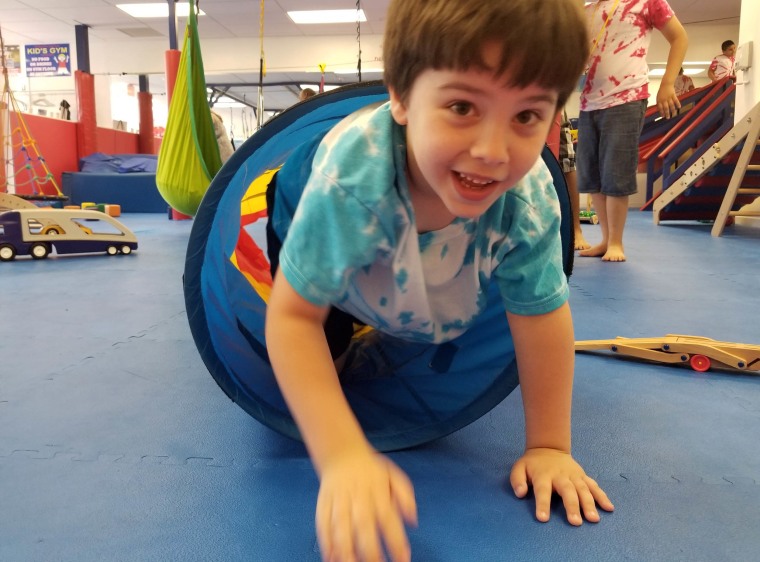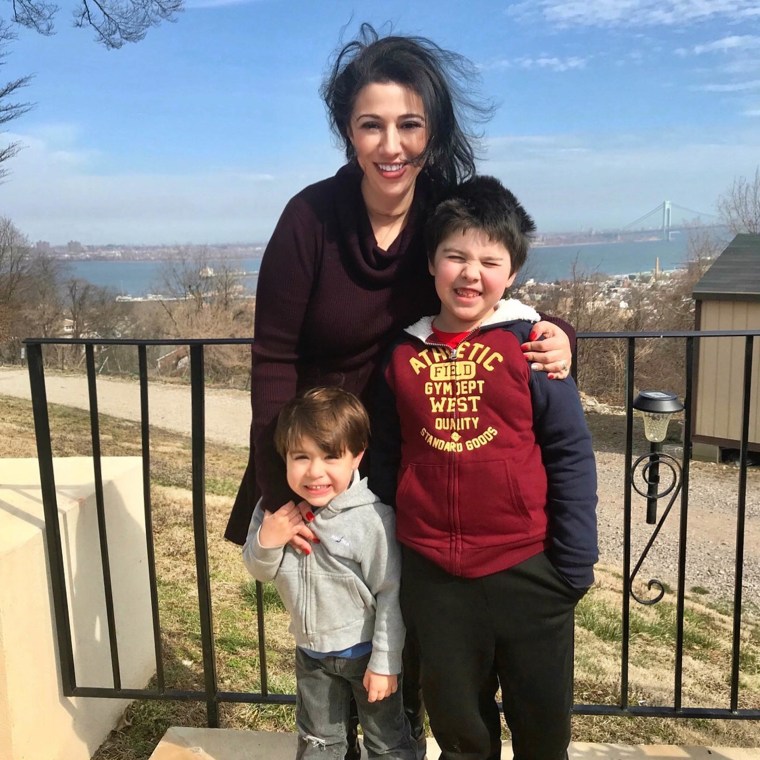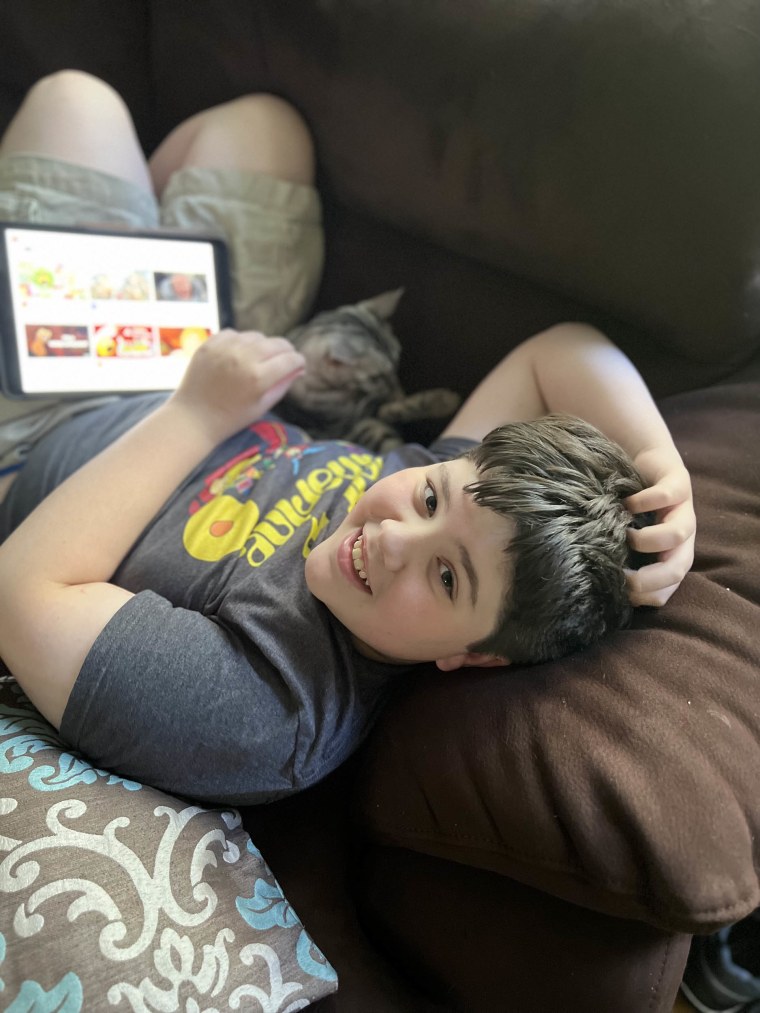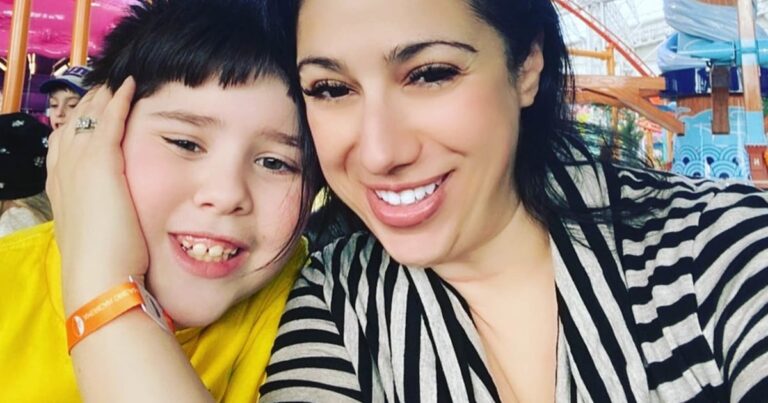When I tell people that my 12-year-old son, Michael, is autistic, there are usually two types of responses. First, there’s the “sad eyes” — you know, the look people give you like you’ve just announced a national tragedy. And then there’s the inevitable question: “Does he have superpowers?”
Ah, yes. Superpowers. Because we’ve all seen “Rain Man,” right? Apparently, we’re still out here acting like Dustin Hoffman’s character was a documentary subject and not, you know, an actor in a scripted film.
My brother-in-law, for example, once casually suggested we take Michael to Vegas to “win big.” I should mention Michael was 4 years old at the time. Four! “He can count cards, right?” he asked, straight-faced. Sorry to disappoint, but no. He makes it sound like Michael was bitten by a radioactive autistic spider who gifted my son with the ability to shuffle through a deck like a human calculator. It doesn’t work that way.

But I’ll admit it: I love the term “superpowers” when it comes to being neurodivergent. Not because it’s true in the superhero sense but because it subtly hints at the way Michael’s mind works — it’s unique, complex and amazing, just not in a go-to-Vegas-and-win-big way.
In general, I wish people would stop treating the word autism like it’s a curse word. It’s not a disease, and it’s certainly not something to feel ashamed of or embarrassed about.
In fact, talking about autism shouldn’t make anyone uncomfortable. Being autistic — or parenting an autistic child — just means things work a little differently. Not worse, just different. Yes, there are challenges, but isn’t that the case with any child?
Actually, in many ways, Michael’s easier to manage than his younger, neurotypical brother, Matthew (age 9). When Michael comes home from school, he hangs up his jacket, puts his shoes away, plugs in his Chromebook, finishes his homework and then grabs a snack. It’s like living with the world’s most efficient roommate.

Matthew, on the other hand, transforms into a human tornado the second he steps through the door. His coat gets hurled into the abyss of the hallway, his shoes land somewhere between the kitchen and the stairs (lying in wait for an unsuspecting victim), and if you even suggest homework, he puts on a performance worthy of “Law & Order.” The energy required to deal with Matthew’s daily “homework defense case” could power a small city.
One of Michael’s most endearing quirks is something called “scripting.” It’s when he repeats lines from TV shows or movies — a common behavior among people with autism. It’s his way of communicating, processing or even just coping with social situations. When things get overwhelming, he turns to familiar lines, kind of like hitting play on his favorite comfort movie.
For instance, if we’re at the beach or a crowded pool, you might catch him quoting “Finding Nemo.” Picture it: A sunny day, a bunch of kids splashing around, and suddenly, there’s Michael, channeling his inner Dory, chirping, “Just keep swimming!” It’s funny and sweet, and it helps him deal with what might otherwise be a sensory overload.
And yes, I’m aware that scripting was demonstrated in “Rain Man” when Dustin Hoffman’s character starts quoting “The People’s Court.” But let’s be real: “Rain Man” is about as accurate a depiction of all autistic people as “Sharknado” is of meteorology. Not every autistic person has a Vegas-worthy talent or the ability to count toothpicks mid-spill. In fact, most don’t.
I once tried to explain scripting to my dad by comparing it to someone quoting “The Godfather” during a party. “Oh,” my dad said, “I do that all the time.” So … that analogy backfired.
And if you’re going to script, why not pick the best? Michael, for reasons I will forever love him, is the only person in our house who will willingly watch “Golden Girls” with me. He’s partial to Dorothy and often imitates her, bellowing, “Ma!” at the most unexpected moments. Honestly, if you’ve got to hear scripting, Bea Arthur is about as good as it gets.
But what I really wish other parents would understand is that Michael, much like every other kid, is his own puzzle — a Rubik’s cube with a few extra twists. He’s not someone to be pitied, feared or put on a pedestal. He’s just a kid. One with a different operating manual, sure, but once you “get” him, he’s every bit as funny, sweet, and charming as any other child. And yes, he’ll probably quote “Finding Nemo” at your next pool party, but I promise, it’ll be the highlight of your day.

Listen, being neurodivergent isn’t a tragedy. It’s just life. We need to stop acting like talking about autism is taboo. It’s not. It’s part of Michael’s life, and it’s part of our family’s life. And while it comes with its fair share of challenges (don’t even get me started on the endless IEP meetings), it’s not something to hide or hush up.
Michael is smart, funny and compassionate. He has his routines, his quirks, and, yes, his superpowers—just not the ones that win at blackjack. He’s also the only person in this house who voluntarily watches “Golden Girls” with me, and honestly, that’s a superpower in itself.
So, next time someone asks me if Michael has superpowers, I might just say yes. Because understanding, navigating and thriving in a world that doesn’t always make room for people who think differently? That’s a pretty superhuman skill to me.
This article was originally published by a www.today.com . Read the Original article here. .



